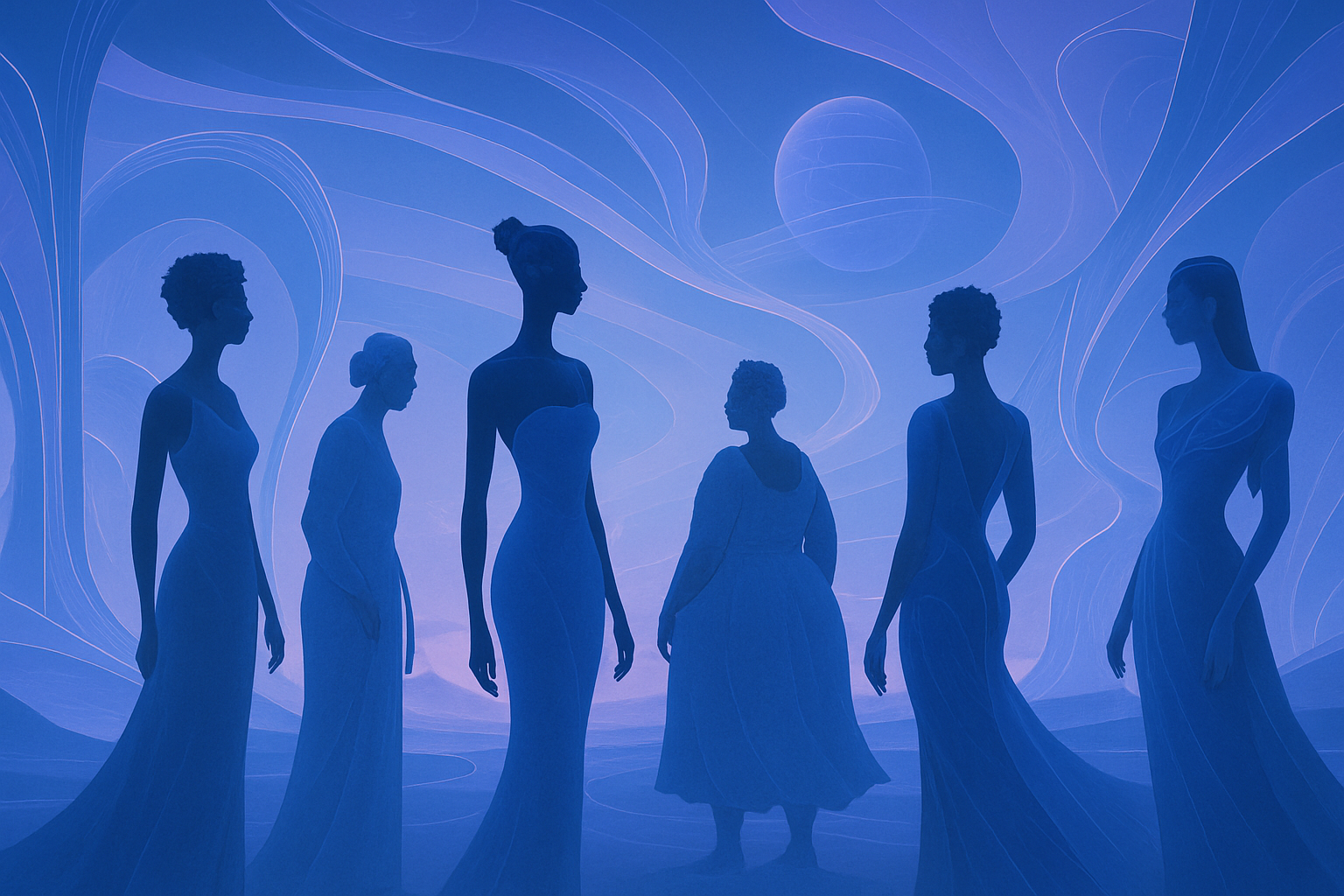The emergence of AI models in the fashion industry raises sharp questions, particularly with the inclusion of the model created for Guess in Vogue. This phenomenon represents a break in the representation of *beauty standards*, highlighting complex dynamics between authenticity and digital aesthetics. The traditional narrative of the human body is now being redefined. These computer-generated images introduce often unreachable norms, exacerbating issues of *diversity* and representation. The psychological and social implications of this trend deserve thorough analysis, as they influence entire generations faced with models that seem unreal.
The phenomenon of the AI model in Vogue
The recent choice of the August issue of Vogue to include an advertisement for Guess featuring an AI-generated model has sparked passionate debates about beauty standards. This model, Seraphinne Vallora, does not exist in reality but embodies modern issues related to aesthetics, diverse bodily representations, and the place of traditional models.
Repercussions on current models
This use of an AI model raises questions about the future of real models. Felicity Hayward, a plus-size model, criticizes this trend as “lazy.” Such an approach could erase the gains made towards greater diversity in the fashion industry, recalling the struggles to represent all body types.
The co-founder of Seraphinne Vallora, Valentina Gonzalez, insists that they do not reinforce unattainable beauty standards. However, the lack of diversity in their creations raises concerns. Attempts to include different skin tones have not garnered the expected excitement on social media, revealing the limits of the commitment to authentic representation.
Societal expectations and negative effects
Contemporary society, already strained by unrealistic beauty standards, faces an amplified risk. Users exposed to artificial images distort their self-perception. Vanessa Longley, director of an association fighting eating disorders, warns against increased exposure to these potentially harmful images.
Young adults and teenagers are at risk of adopting extreme behaviors, including cosmetic surgery, to resemble faces shaped by algorithms.
Technological progress and transparency
The technology behind AI-generated models is constantly evolving. The lack of transparency regarding the identity of these models poses a major ethical issue. Although Guess has subtly mentioned that its model originated from an AI creation, this indication remains almost invisible to the general public.
Co-founder Andreea Petrescu states that Seraphinne Vallora offers a different choice to companies, aiming to reduce costs associated with traditional advertising. However, this raises concerns about the true essence of artistic creativity in the fashion world.
Reactions from the fashion community
Influential figures in the industry, such as Sinead Bovell, are worried about the implications AI could have on human models. She predicts that society might turn away from AI-generated models, realizing their artificial nature and the gap between these images and reality.
The uncertain future of beauty standards
The excitement for AI models in advertising could redefine aesthetic expectations. While technology allows for innovations, it also risks fueling social pressures to be exceptionally perfect. Individuals may find themselves disgusted by their image, thus feeding a vicious cycle of self-discontent.
Discussions around beauty standards, exacerbated by the rise of AI models, prove crucial in a world where authenticity is undermined. Movements seek to promote a more equitable representation, emphasizing the need to include all forms of beauty.
Initiatives like those from Dove, denouncing systemic biases in image creation, highlight the urgent need to integrate diversity and authenticity into contemporary visual discourse.
Questions persist as the adoption of AI grows in areas previously reserved for humans. Vogue’s decision to publish this advertisement, albeit inadequately labeled as AI, amplifies existing concerns about the mental health of consumers confronted with a barrage of images that bear little relation to reality.
Frequently asked questions about the impact of Guess’s AI model in Vogue on beauty standards
What is the impact of Guess’s AI model on the perception of beauty standards?
The AI model can exacerbate unrealistic beauty standards by presenting images of perfect models, which may negatively influence body image, particularly among young consumers.
How does the use of AI-generated models affect real models in the fashion industry?
This trend could diminish opportunities for real models, especially those representing body diversities, by promoting often standardized and non-inclusive images.
Why has the AI model been deemed dangerous to consumers’ mental health?
Images created by AI are often perceived as unattainable ideals, which can heighten body image anxiety and lead to eating disorders.
What are the implications of Vogue’s decision to include an advertisement with an AI model?
The inclusion of this advertisement suggests a growing acceptance of digital images at the expense of human models, raising concerns about the direction the industry is taking towards even more unrealistic standards.
Do AI models reinforce a more diverse image of beauty or restrict it?
Current AI models tend to reproduce limited beauty conventions, thereby generating representations that do not reflect the diversity of bodies and ethnicities present in society.
Can companies completely replace human models with AI-generated models?
While AI models represent an economically attractive option for some, they cannot fully replace the creativity, authenticity, and diversity that real models bring to fashion.
How can consumers evaluate the impact of AI models on their own beauty standards?
Consumers should be aware that these models are enhanced to meet often impossible ideals, fostering open discussions about self-acceptance and body diversity.
Is it legal not to clearly indicate that an image is generated by AI?
Currently, there are no strict regulations in the UK regarding the labeling of AI-generated content, which raises ethical and transparency issues for brands.






